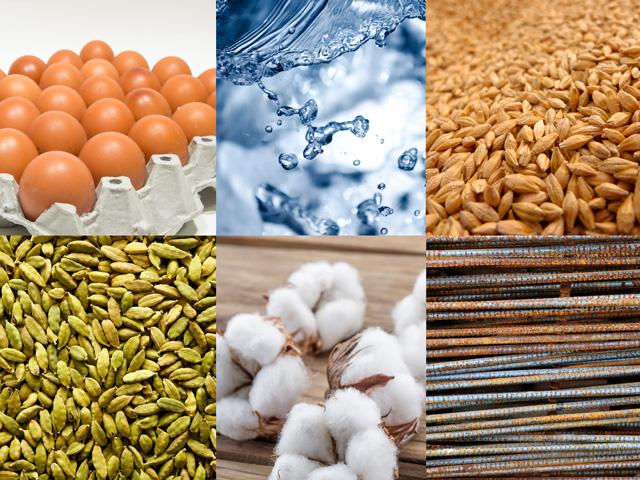Commodities prices could rise by 40 percent and will likely continue to go higher, according to a note from JPMorgan Chase from April 7, as raw materials hit a record high last month following Western sanctions on Russia due to its invasion of Ukraine.
This is the trouble that we get with Globalism and being dependent on foreigners. Remember that when voting, because we don’t need to be experiencing this mess.
According to Investopedia, “A commodity is a basic good used in commerce that is interchangeable with other goods of the same type. Commodities are most often used as inputs in the production of other goods or services. The quality of a given commodity may differ slightly, but it is essentially uniform across producers. When they are traded on an exchange, commodities must also meet specified minimum standards, also known as a basis grade.”
The basic idea is that there is little differentiation between a commodity coming from one producer and the same commodity from another producer. A barrel of oil is basically the same product, regardless of the producer. By contrast, for electronics merchandise, the quality and features of a given product may be completely different depending on the producer.
Some traditional examples of commodities include grains, gold, beef, oil, and natural gas. More recently, the definition has expanded to include financial products, such as foreign currencies and indexes. Technological advances have also led to new types of commodities being exchanged in the marketplace. For example, cell phone minutes and bandwidth.
According to worldbank:
The global recession caused by the pandemic in early 2020 led to a widespread collapse in commodity prices. The collapse was followed by a synchronized sharp rebound in prices.
Such synchronized booms and slumps in commodity prices have been common in recent decades. In the years ahead, the transition away from fossil fuels to low-carbon technologies will cause profound, far-reaching shifts in the pattern of demand and supply for commodities, which can have major macroeconomic consequences.
Commodity-exporting emerging market and developing economies (EMDEs) generally need to take steps to better manage future commodity price shocks and to reduce their reliance on commodities.
What happen, however, was a great political shake up- causing things to spiral out of control, esp. with the conflict between Russia and Ukraine.
Russia is a main supplier for up to 10 percent of global energy production and about 20 percent of global wheat production.
The commodities affected include oil, which is already up 33 percent from the same month the previous year, while natural gas has gone up by 65 percent since the invasion roiled the markets.
Metals excluding gold, such as copper, are up by 7 percent from 2021. Wheat has surged upward by 33 percent.
The bank said it was reviewing the long-term positioning in commodities by global investors, and compared that to allocations in cash, stocks, and bonds.
“In dollar terms, the total open interest of commodity futures ex gold stands at around $1.4 trillion, which, although high by historical standards, looks much lower compared to the stock of equities, bonds, and cash in the world,” said the bank.
JPMorgan said that while investors’ implied commodity allocation of 0.72 percent is higher than the average seen after the Lehman Brothers crash, it is still well below the record highs of 2008 and 2011.
The spike in commodities is being fueled by increased demand from consumers who are spending more in a post-pandemic world, but the Western sanctions on Russia have worsened the global supply of those resources.
Already high inflation rates are being worsened by the conflict, spurring tougher measures from the Federal Reserve this year and prompting investors to assess reshuffling the weighting of assets between stocks, bonds, and raw materials in their portfolios.
